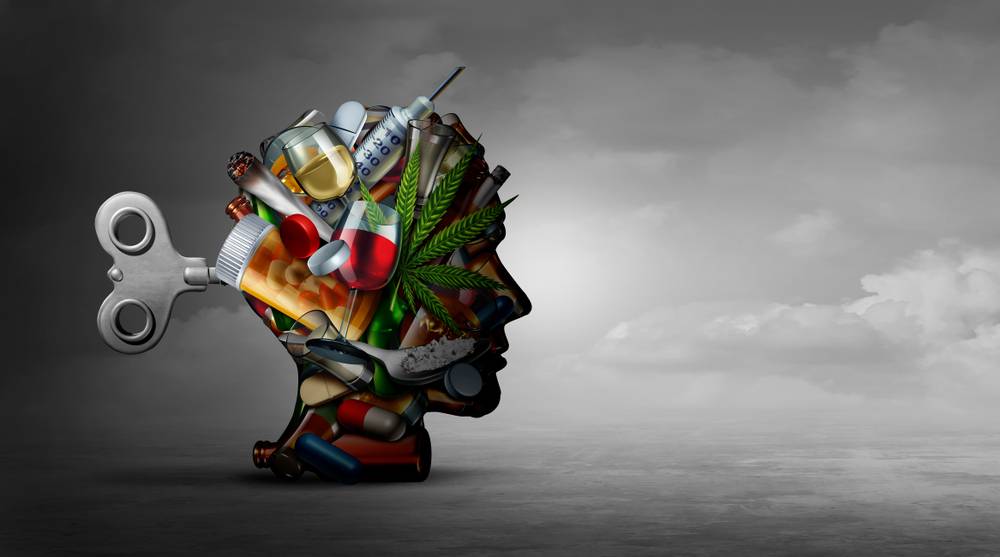Table of Contents
Do you ever feel like a stranger in your own home? If someone in your family is dealing with addiction, chances are that feeling might be all too familiar.
You may observe mood changes, outbursts of anger, and arguments over substance misuse. All of this can take a toll on the person addicted and the family’s mental health. But what’s causing this behavior and how does it connect to psychological well-being?
In this blog post, we’ll explore the complex relationship between addiction and mental health.
Substance Use and Mental Health
The relationship between substance use and mental health creates a complex interplay known as dual diagnosis. This term captures the presence of both addiction and mental health disorders, which often make things more challenging for individuals. Ultimately, the relationship is dual-sided.
These conditions often go hand in hand, creating a cycle that’s tough to break. Mental health struggles can drive people towards substances as a coping strategy, while substance abuse can worsen or even trigger mental health problems.
Drug addiction and mental health intertwine in various ways. Substance abuse triggers chemical changes in the brain that disturb neurotransmitter balance, affecting mood, cognition, and behavior.
Certain mental health disorders are closely associated with addiction in this context. In fact, over 25% of adults with serious mental health issues also face challenges with substance abuse. Common mental health issues include:
- Depression
- Anxiety
- Post-traumatic stress disorder (PTSD)
- Schizophrenia
The relationship between substance use disorder (SUD) and depression is particularly noteworthy. Substance abuse can be both a cause and a consequence of depression.
Individuals grappling with the weight of depression may turn to substances as a means of self-medication, seeking temporary relief from emotional pain. On the flip side, long-term substance use can mess with brain chemistry, making depression worse and keeping it around.
It’s important to recognize and address co-occurring disorders for effective treatment. Focusing on only one aspect of the issue can lead to incomplete and less sustainable outcomes.
Different Factors of Mental Health and Addiction
Biological Factors
The impact of addiction on the brain’s psychology is profound.
Neurotransmitters in the brain are chemical messengers that help nerve cells communicate with each other. They play a crucial role in mental health and drug addiction. Imbalances in neurotransmitter levels, such as dopamine and serotonin, are associated with various mental health disorders and are also affected by substance abuse.
Brain regions are also significantly impacted by addiction and mental health issues. Chronic substance use can alter the structure and function of key areas involved in reward processing, decision-making, and impulse control. Similarly, mental health disorders often manifest as distinct patterns of brain activity.
Genetic predisposition further amplifies the link between addiction and mental health. Those with a family history of either condition may be more prone to developing both, as specific genes can influence substance response and vulnerability to mental health disorders. Understanding these genetic factors is vital for customized treatment approaches.
Environmental Factors
In addition to biology, environmental factors play a major role in addiction and mental health problems.
Childhood trauma, in particular, can greatly influence vulnerability to substance abuse and mental disorders later in life. The lasting impact of trauma can lead individuals to turn to substances as a way to cope or contribute to the development of conditions like PTSD.
In today’s digital age, the rise of social media usage has added a new dynamic to the environmental factors that impact our mental well-being.
Constantly being connected and carefully crafted online identities can make us feel inadequate, anxious, and even depressed. The temptation to seek validation in the virtual world can push us to rely too heavily on social media as a way to cope. This makes the issue of social media addiction and mental health even more complicated.
Psychological Factors
The four C’s of addiction give us a way to understand the psychological side of addictive behaviors.
- Compulsion is that unstoppable urge to use substances.
- Craving is that really strong desire for the substance.
- Consequences are the bad outcomes that often happen, even though you know they could be harmful.
- Control is when you start losing the ability to regulate or stop using substances like you’re no longer in control.
It’s important to recognize these things to truly understand how addiction takes hold of people.
Moreover, addiction is undeniably intertwined with emotions. It’s not just about how someone acts, but also about how they handle their emotions. People often turn to substances as a way to cope with emotional pain, trauma, or mental health problems.
Stress, a major force in today’s world, is another psychological factor that intersects with SUD and emotion. When dealing with the everyday pressures of life, high levels of chronic stress can lead some individuals to turn to substance abuse as a coping mechanism. Similarly, substance abuse can worsen stress, creating a cycle.
To treat addiction effectively, we need to understand the emotional factors that contribute to it. This means addressing not only the physical side of things but also the emotional weaknesses that keep addictive behaviors going.
Treatment Approaches
Dealing with the hurdles of addiction and mental health calls for a comprehensive and nuanced treatment approach. Recognizing the complexity of dual diagnosis, effective interventions aim to tackle not just substance use but also the underlying mental health issues at hand.
Holistic treatment models take into account the bigger picture of a person’s well-being. They incorporate physical health, nutrition, exercise, and mindfulness practices into treatment plans to promote overall wellness.
When exploring treatment options, it’s important to understand that there’s no one-size-fits-all solution. Each individual’s journey is unique, and a successful treatment plan requires continuous assessment and adjustment. Seeking professional guidance and support is a crucial step towards unraveling the complexities of dual diagnosis and embarking on a path of holistic healing.
If you or someone you know is ready to start a healing journey, contact us at Infinite Recovery. Our dedicated team is here to guide and support you, offering compassionate and personalized approaches to transform lives.

















